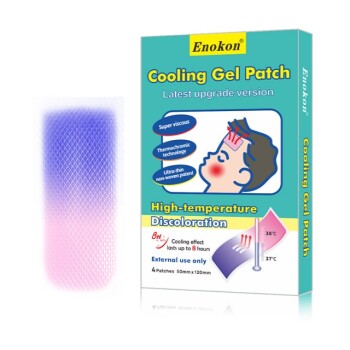The single most important warning is that using asenapine transdermal patches in older adults with dementia-related psychosis significantly increases their risk of death. This is a class-wide warning for all antipsychotic drugs, and asenapine is not approved by the FDA for treating behavioral problems in this vulnerable population.
The core issue is a conflict between the delivery method and the drug itself. While a transdermal patch offers compelling benefits for elderly patients, such as improved compliance, these advantages do not negate the life-threatening risks associated with the antipsychotic drug asenapine when used in those with dementia.

The Core Risk: A Black Box Warning for Antipsychotics
The warning associated with asenapine for elderly patients with dementia is the most severe type issued by the FDA. It stems from clinical data showing a clear and dangerous pattern for this entire class of drugs.
Increased Mortality in Dementia Patients
Studies have consistently shown that older adults with dementia who are treated with antipsychotic drugs like asenapine have a higher risk of death compared to those receiving a placebo. This is the primary and most critical warning.
Elevated Risk of Stroke
Beyond the general increased risk of death, this patient group also has a greater chance of experiencing a cerebrovascular event, such as a stroke or a ministroke, during treatment.
Not Approved for This Specific Use
It is crucial to understand that asenapine transdermal patches are not FDA-approved for treating behavioral problems in older adults with dementia. Using it for this purpose is considered an "off-label" application, meaning its safety and effectiveness have not been formally established for this condition.
Why Patches Are Otherwise Appealing for Elderly Patients
The warning is specific to the drug, not the delivery system. Transdermal patches, as a technology, offer distinct advantages, especially for managing chronic conditions in older adults.
Simplifying Medication Regimens
A patch simplifies treatment by replacing a schedule of oral pills with a single, often once-daily, application. This can dramatically improve medication compliance for patients and reduce the burden on caregivers.
Ensuring Continuous, Steady Dosing
Patches deliver medication continuously through the skin, maintaining stable drug levels in the bloodstream. This avoids the peaks and troughs associated with oral medication, which can help reduce side effects.
Bypassing Gastrointestinal Issues
Because the drug is absorbed through the skin, it bypasses the digestive system. This can prevent gastrointestinal side effects, a common issue for many older adults taking oral medications.
Understanding the Trade-offs
When considering any treatment, it's essential to weigh the benefits against the risks. In this case, the distinction between the drug and its delivery method is paramount.
The Drug vs. The Delivery Method
The convenience and compliance benefits of a transdermal patch are significant. However, these benefits are irrelevant if the active drug itself poses a severe risk to the patient. The black box warning for asenapine is about the drug's intrinsic effect on this population, a risk that remains no matter how it is administered.
General Patch-Related Cautions
Even with safe and appropriate drugs, transdermal patches require care. Patches should only be applied to intact, healthy skin, as broken skin can increase drug absorption to dangerous levels. Factors like external heat, using more patches than prescribed, or severe liver problems can also increase systemic absorption and potential toxicity.
Making the Right Choice for Your Goal
When evaluating asenapine patches, the patient's specific condition and risk profile must be the deciding factor.
- If your primary focus is treating behavioral issues in an elderly patient with dementia: The established increased risk of death and stroke makes antipsychotics like asenapine an inappropriate and dangerous choice.
- If your primary focus is improving compliance for an FDA-approved condition in an elderly patient: A transdermal patch can be an excellent tool, but the choice of drug must be one that is proven safe and effective for that specific patient and diagnosis.
Ultimately, the inherent risks of the medication must always outweigh the logistical benefits of its delivery system.
Summary Table:
| Risk Factor | Key Warning | Applicable Population |
|---|---|---|
| Mortality | Significantly increased risk of death | Older adults with dementia-related psychosis |
| Stroke | Elevated risk of cerebrovascular events | Older adults with dementia-related psychosis |
| Approval Status | Not FDA-approved for dementia-related behaviors | Use is considered "off-label" |
Need a reliable, custom transdermal solution for an approved condition?
At Enokon, we are a bulk manufacturer of reliable transdermal patches and pain plasters. We partner with healthcare and pharmaceutical distributors and brands to develop safe and effective delivery systems.
Benefit from our technical expertise for custom R&D and development. Let us help you create a compliant patch that prioritizes patient safety.
Contact our experts today to discuss your transdermal project needs.
Visual Guide

Related Products
- Far Infrared Heat Pain Relief Patches Transdermal Patches
- Capsaicin Chili Medicated Pain Relief Patches
- Heating Pain Relief Patches for Menstrual Cramps
- Asthma Cough and Pain Relief Patch for Adults and Kids
- Far Infrared Deep Heat Relief Patches Medicated Pain Relief Patches
People Also Ask
- How do Deep Heat Pain Relief Patches provide pain relief? Discover the Drug-Free Mechanism
- What are the common side effects of using the medicated heat patch? Understanding Risks & Safe Use
- What are the key features of the Deep Heat Pain Relief Back Patch? Get Up to 16 Hours of Drug-Free Relief
- How does the Deep Heat Back Patch work? A Drug-Free Solution for Targeted Pain Relief
- How does capsaicin work in the medicated heat patch? The Science Behind Pain Relief

















